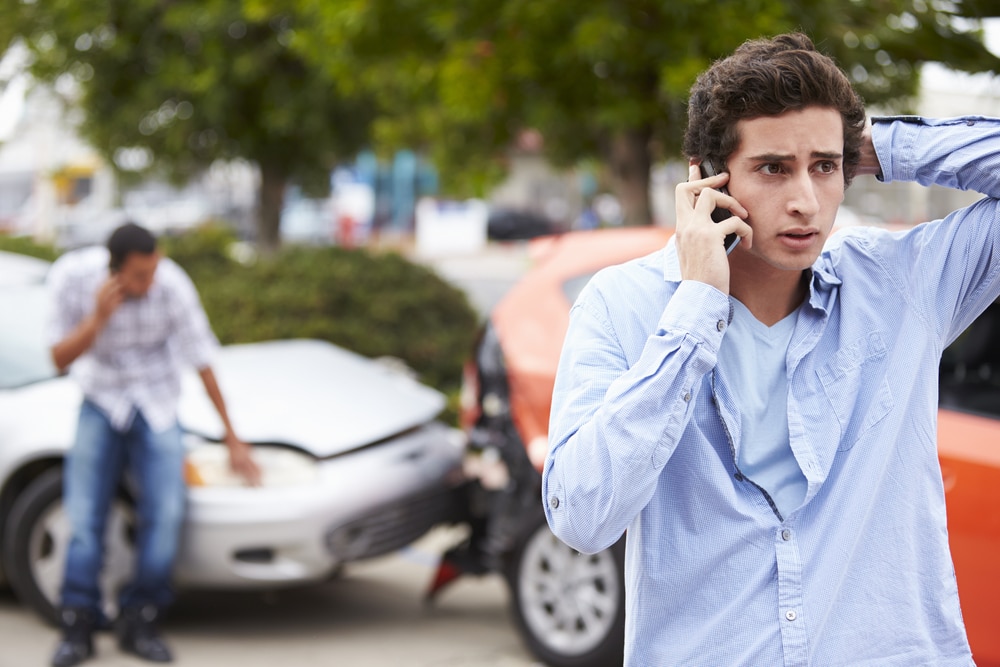As more people take to the roads during the holiday season, it’s no surprise that car accidents also increase this time of year. While most know that any kind of motor vehicle accident can result in catastrophic injuries and fatalities, many side effects of these life-changing events are frequently not discussed.
What Can Happen to Your Body After a Car Accident?
Car accidents are known to result in injuries from broken bones to whiplash, but did you also know that dozens of other conditions can be developed from this one incident? Injuries sustained in an accident can have serious long-term implications if you don’t know whether to seek treatment for them.
Physical Injuries
Getting into a car accident always comes with the possibility of hitting your head. Whether this is from not wearing a seatbelt or hitting your head on the window, severe brain trauma can occur. However, several other physical ailments can come from being in a car crash, including:
- Traumatic Brain Injuries (TBIs): these can occur in any kind of car accident where a driver or passenger has hit their head. Mild forms of TBIs can include concussions, whereas more severe cases can result in memory loss, skull fractures, and internal bleeding.
- Arthritis: a form of osteoarthritis called “post-traumatic arthritis” is common after car accidents. It also accounts for 12% of osteoarthritis cases in the joints of the legs.
- Vertigo: a common reason for experiencing vertigo and car sickness long-term after a car accident has to do with the severity of a TBI or concussion. These symptoms can be associated with “traumatic Ménière syndrome”, in which these signs might not even show up for months, or even years, after an accident.
Mental Health Issues
While traumatic brain injuries (TBIs) certainly come with their own risk of aiding in mental disorder development down the line, there are other less talked about conditions that come with simply being in an accident, including:
- Post-Traumatic Stress Disorder (PTSD): this is one of the most common mental health issues that someone can develop after an accident. In fact, the American Psychological Association has done numerous studies concluding that car accidents are the number one cause of PTSD in the general population.
- Depression and Anxiety: even if there are no physical injuries or fatalities from an accident, the mere act of being involved in one can greatly affect your mental health. Depression and anxiety are unfortunately common and can trigger multiple physical symptoms like nausea, muscle tension, and migraines. It can also make it more stressful to get behind the wheel in the future.
- Development of Phobias: while this isn’t the case for everyone, many people do develop a fear of driving or riding in a car after being involved in an accident. Fortunately, though, this is one that is likely to subside most quickly.
The Legal Ramifications of Crashing
It is important to know the health risks that can result from an accident, but there are several legal ramifications as well. Crashes are usually documented on your driving record and can affect much of your life moving forward, including keeping your license, getting a car, and much more.
Insurance Rate Increase
Anyone who has been in an accident knows the stress of finding out that your car insurance rates increase as a result of crashing. But what may surprise you is that these increases can be significant and vary by state, with California having the highest average rate increase of 73%.
However, it’s a common misconception that this will only happen to those deemed at fault. Every driver involved in an accident is at risk of their rates going up. While most major insurance companies have accident forgiveness programs, this does not entirely eliminate this possibility and usually only applies to those who haven’t already been in an accident.
License Suspension
A lesser-known side effect of crashing your vehicle is that you may be subject to a license suspension or full revocation. The California Department of Motor Vehicles (DMV) can, and usually does, revoke driving privileges for those found at-fault for causing an accident that resulted in major injuries to another party. The DMV will also have you labeled as a “negligent operator,” making you ineligible to maintain driving privileges.
You can also be subject to the Negligent Operator Treatment System if you accumulate a certain number of “points” on your driving record. These also come from accidents in which you are at-fault, regardless if someone was injured. Once you hit a certain number of points, your license can be suspended or revoked. However, drivers ultimately can challenge this decision.
Car Crash Injury? Call Our San Francisco Trial Lawyers
If you or a loved one has been injured as a result of a negligent driver, the team at Delfino Green & Green will work diligently to make sure you receive adequate compensation. Contact our team by calling 415-442-4646 or visiting our website to schedule a free consultation.



